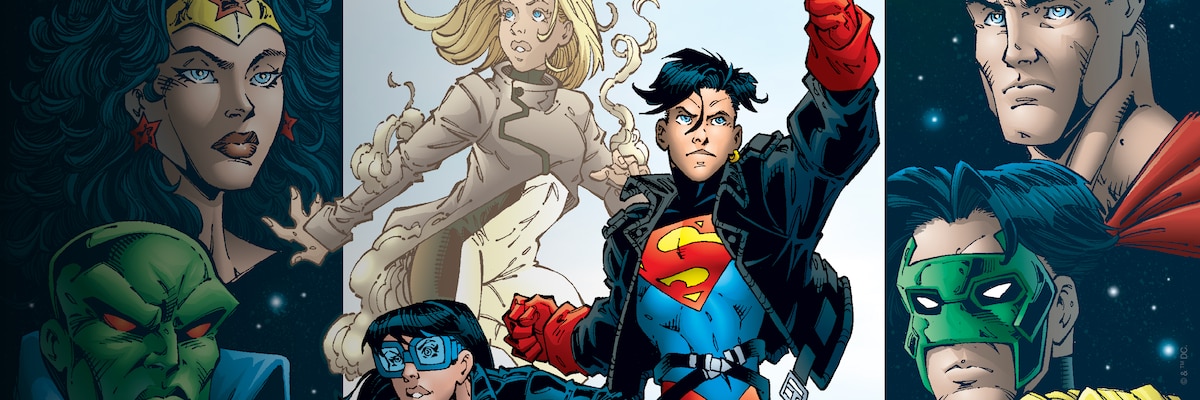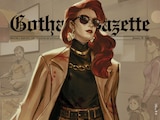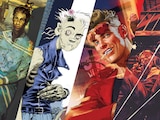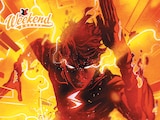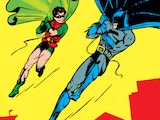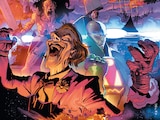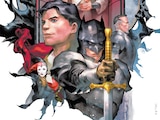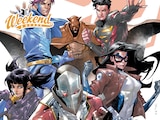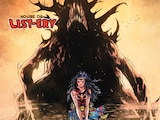On May 24, 2025, we lost Peter David, a truly special writer who gave the DC Universe some of its greatest stories. As a storyteller, he fired on all cylinders. His characters were well-defined, unique and capable of working their way into your heart. As a person, Peter David was generous, kind and empathetic. I had the pleasure of interviewing him many times over the years, and it was always a great experience. I’ve seen firsthand how David looked out for his fans, and the little things he would do to brighten their days.
If it wasn’t for Peter David, Aquaman would be unrecognizable. In 1990, David wrote The Atlantis Chronicles, but his run really began with the 1993 limited series Aquaman: Time and Tide, which led into a new ongoing series in 1994. At the time, Aquaman was struggling. His previous two ongoings had ended early due to poor sales, and the character was hanging around team books in a supporting role.
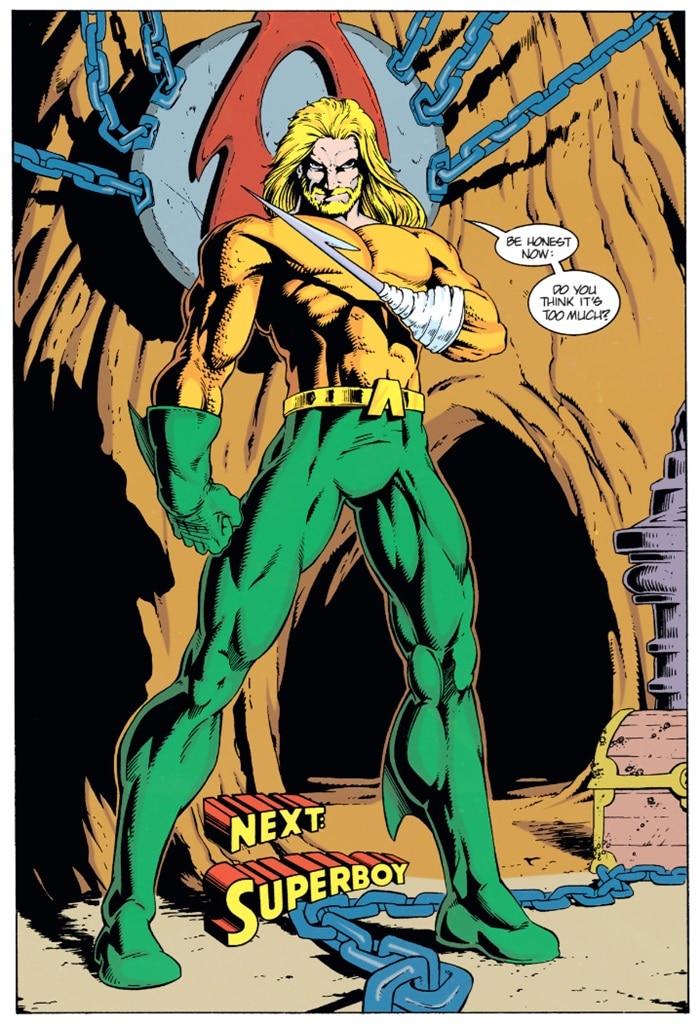
David remade Aquaman and readers took notice. The character grew his hair long, got himself a beard, lost his arm and replaced it with a harpoon. (It wasn’t a hook, despite what many people believe, as David himself made clear a number of times.) His tough attitude and brash nature made it clear that this wasn’t your father’s Aquaman from the Super Friends animated series. So much of Jason Momoa’s Aquaman persona and look was derived from the Peter David run. The character has never been the same since.
In 1996, Peter David launched Supergirl, an ongoing series that revamped and rescued the character. At the time, Supergirl was not Kara Zor-El, but Matrix, an artificial lifeform from another dimension. The protoplasmic being had gone through a few rough years, believing herself to be Clark Kent after shapeshifting and entering into a questionable relationship with Lex Luthor.
David took the character in a bold new direction. First, he had Matrix question her existence and humanity. If she was an artificial being made of protoplasm, does that mean she has a soul? These questions took on new meaning when she rescued a young Satanist named Linda Danvers. During the rescue, the two merged into one being. Now Matrix had what she always wanted, a real human life, but what a complicated life it was.
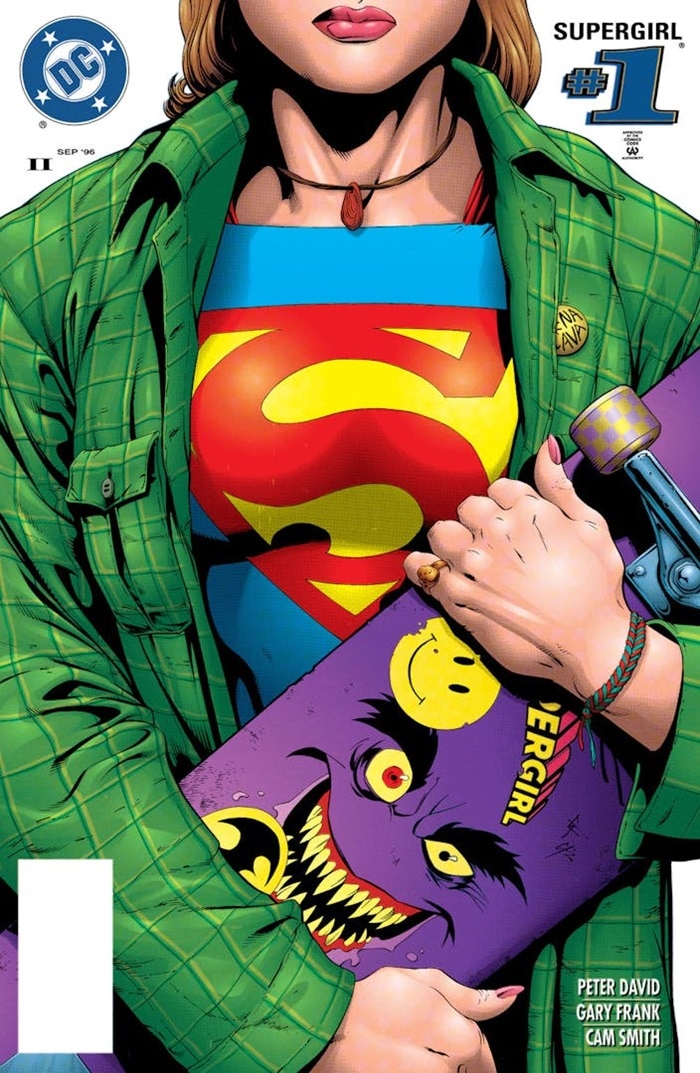
David’s Supergirl was one of the most interesting books to come out of DC in the 1990s. It tackled homophobia, racism, free speech, theology and a variety of other topics traditional superhero comics rarely touched. The ending arc, “Many Happy Returns,” is one of the most entertaining DC storylines you’ll ever read. It has the Silver Age version of Kara Zor-El land in the modern DC Universe, where Linda takes her under her wing. We see Kara’s Silver Age sensibilities contrast with Linda’s Generation X world, and it’s a fun read with a heartbreaking ending.
In 1998, Peter David launched the series Young Justice alongside artist Todd Nauck. The new title followed DC’s teen heroes as they started an informal team. The book was willing to take creative risks and never took itself too seriously, which resulted in fun stuff like the silent issue where Impulse battles a group of evil mimes, or the story where the team stars in a reality show, forcing Robin to develop his alternate persona Mister Sarcastic. It wasn’t always silly and lighthearted, though. David also had the team deal with heavy topics, such as gun control and racism.
I once had a conversation with David where he told me Young Justice was meant to be an entry level book for younger readers before they graduated into the larger DC Universe. And speaking from experience, that’s exactly what it became. Years ago, a child in my life named George was going through a custody battle. He didn’t know where he was going to live and everyone he loved seemed to be turning against one another, but Young Justice was something that gave him joy and helped him escape.
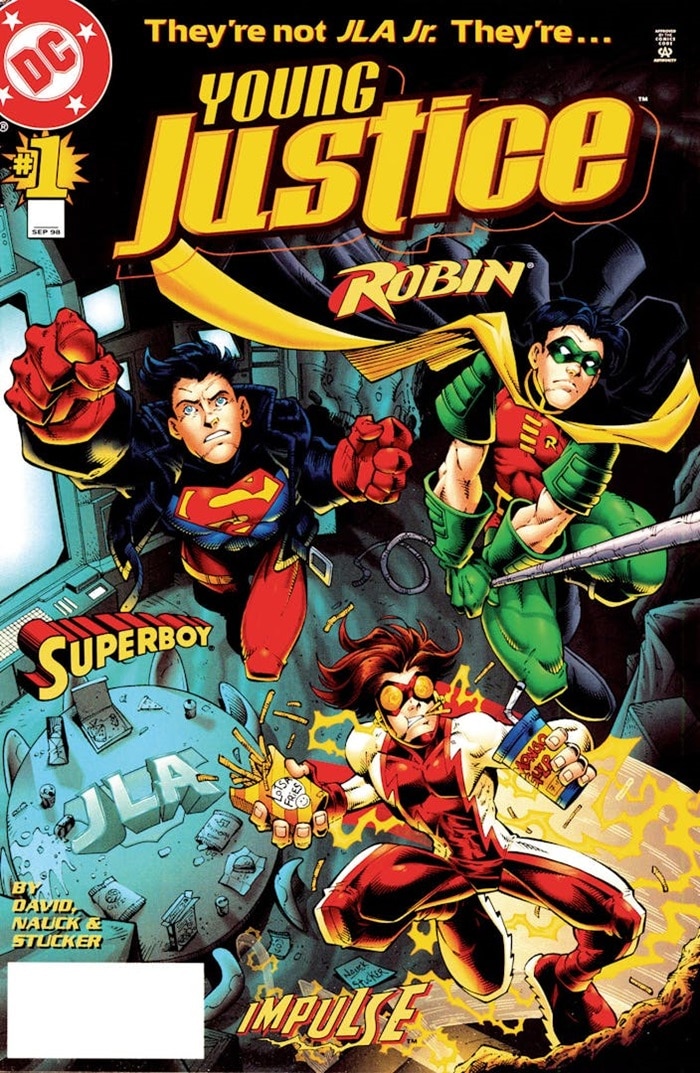
Every night we would read an issue of Young Justice before bed. These issues brought George laughter, entertainment and joy. Those nights reading the comic together served as a positive memory for both of us during one of the most stressful times of our lives. George is in college now, and we still regularly talk about the memories we built and the fun we had staying up to read Young Justice.
During one of my interviews with Peter David, we spoke about George and the tough time he was going through. David offered to send George a signed copy of one of his Young Justice trade paperbacks. I offered to pay for shipping, and he said, “Don’t worry about it.”
Days later, George was getting ready to leave the state he had grown up in and travel across the country to his new home. It was an uncertain time, but a package arrived that day which lifted his spirits. Not only had Peter David signed the trade, but he included a personal message encouraging him about the move. He even recommended some of his favorite dining spots in the area.
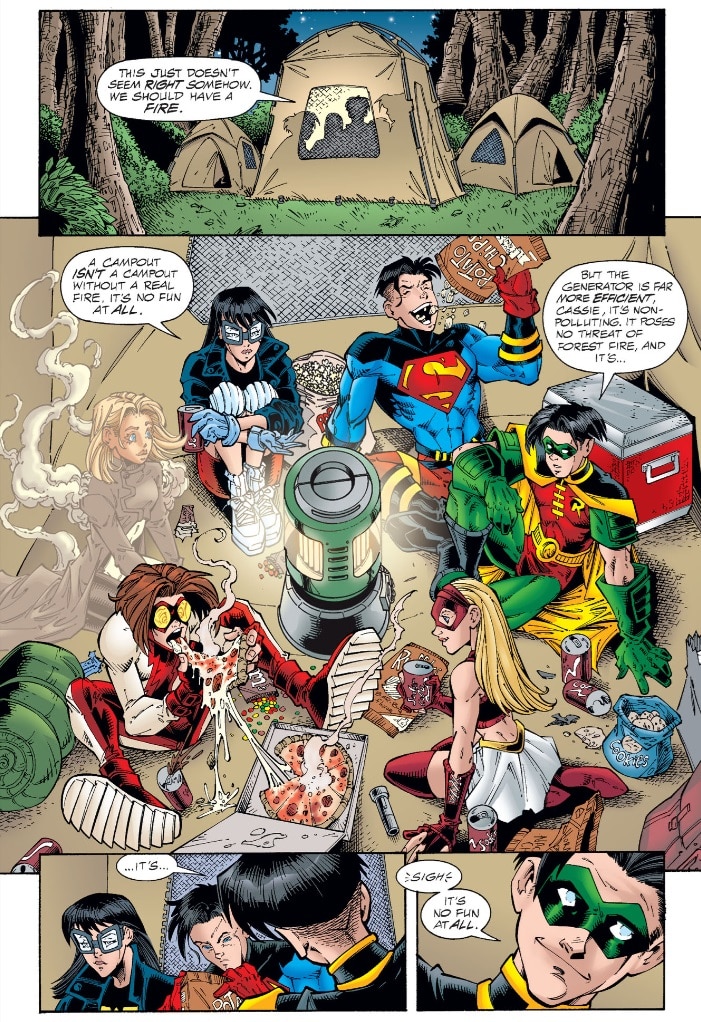
For George, this was huge. This was the writer of his favorite comic, the series that had comforted him for months, giving him a personal message of encouragement. I emailed David, thanking him for what he did, and letting him know how much impact it had on George.
“He had the biggest smile on his face and couldn't believe that his favorite writer had sent him something,” I wrote. “He was bragging to his friend. You made a ten-year-old boy feel very special. I hope you know that that means a lot to us.”
That’s why Peter David was an amazing human being. He used his words to make people feel better, whether it was on the comics page, or in a personalized note to a child in crisis. His work transformed the DC Universe, but more importantly, it transformed lives. The world was a better place because Peter David was in it, and his impact will never be forgotten.
Joshua Lapin-Bertone writes about TV, movies and comics for DC.com, is a regular contributor to the Couch Club and writes our monthly Batman column, "Gotham Gazette." Follow him on Bluesky at @joshualapinbertone and on X at @TBUJosh.
NOTE: The views and opinions expressed in this feature are solely those of Joshua Lapin-Bertone and do not necessarily reflect those of DC or Warner Bros. Discovery, nor should they be read as confirmation or denial of future DC plans.
